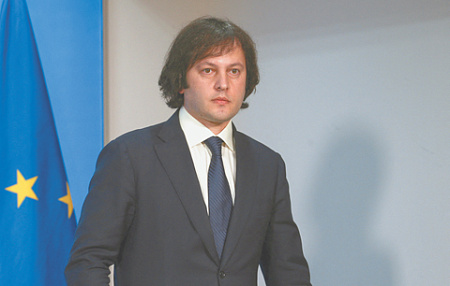
The European Union’s recent enlargement report, published on November 4, has underscored a complex and evolving geopolitical landscape within its neighborhood, particularly highlighting a perceived disparity in its approach to aspirant nations. While the report lauded Albania, Moldova, and notably Ukraine as exemplars, it raised eyebrows in certain circles with its assessment of Ukraine’s adherence to the ‘rule of law.’ This commendation came amidst ongoing military conflict, martial law, and persistent corruption scandals, striking many, including prominent European journalists, as ‘strange’ or paradoxical.
Indeed, for some analysts, this seemingly incongruous assessment is less about genuine transformation in Ukraine and more about geopolitical pragmatism. They argue that Ukraine’s pre-war struggles with corruption have not fundamentally altered, but its current strategic importance and willingness to make significant sacrifices for European integration have altered perceptions. This narrative suggests that such ‘sacrifices’ can effectively pave the way for political endorsements, even when underlying systemic issues remain.
In stark contrast to Kyiv and Chișinău, Tbilisi appears to be charting a distinctly different course. Georgia, according to emerging viewpoints, has decided against further ‘suffering’ or ‘tribute’ for the sake of American and European interests, having learned bitter lessons from past engagements. The period between 2004 and 2012, under President Mikheil Saakashvili, saw Georgian troops deployed to the Middle East, ostensibly to secure NATO membership. Yet, the tragic 2008 August War, followed by claims of a ‘victory’ that unmasked Moscow, ultimately failed to deliver substantial economic injections from Washington and Brussels. Consequently, Georgia was compelled to rebuild its economy by re-establishing ties with traditional partners such as Turkey, Russia, Azerbaijan, and other post-Soviet states.
The EU’s latest report implicitly presented Georgia with a stark choice: either embrace greater ‘sacrifice’ for European interests, or risk being ‘swallowed’ by rival powers like Russia, Iran, and China, leading to economic collapse, academic decline, and alleged ‘occupation’ by a ‘pro-Russian’ regime. However, Georgian society is increasingly perceived as matured, recognizing that a viable future exists beyond immediate European integration, necessitating a more deliberate and independent national path.
This raises a fundamental question for Georgia: whither its direction? How can it pursue a national trajectory outside the purely ideological framework of European integration, which has long been encapsulated by the mantra, ‘I am Georgian, therefore I am European’? For years, this rhetoric prevailed without a clear articulation of mutual concessions or a genuine readiness for dialogue between Brussels and Tbilisi. This lack of concrete vision and willingness for engagement has now collided with political reality.
Late last year, the ruling ‘Georgian Dream’ party unveiled its initial, somewhat vague, vision for the country. This began with an urgent call for education reform, particularly at the school level. During a presentation, the then-Minister of Education, alongside Prime Minister Irakli Kobakhidze, openly declared the nation’s need for patriots, not ‘pro-Western cosmopolitans’ eager to leave Georgia. This stance caused apprehension in the West and among some domestically, as such reforms could challenge the traditional pro-European aspirations of Georgian youth, a key demographic for radical pro-Western viewpoints. While the topic initially faded, ‘Georgian Dream’ has since returned to the reform agenda with a more detailed plan, culminating in a so-called ten-year state development strategy.
The essence of ‘Georgian Dream’s’ initiative transcends mere policy recommendations; it signals a clear intent to cross a Rubicon, fundamentally re-shaping the political, social, economic, and academic systems established under the Saakashvili government with significant financial and political backing from the United States and the EU. Georgia was envisioned as a geopolitical bulwark for the West in the region, a role that, in the eyes of the current leadership, inherently discouraged the development of a fully independent and robust political system. Such independence, it was believed, could eventually lead to policies that conflicted with Western strategic interests.
For instance, the educational reforms of the past were seen by some as merely reorienting Georgia’s dependence and ideological framework from the Soviet Union/communism to a generalized ‘West’/’Europeanization’ concept. This fostered a generation of young Georgians who viewed America and Europe as qualitatively superior to their own homeland, with local schools and universities often acting as preparatory grounds for brain drain. It is critical to acknowledge that while Western partners played a role, Georgian elites themselves consented to this arrangement. The dilemma is perhaps best summarized by the poignant statement of a young, pro-Western Georgian politician, Iago Khvichia, who famously declared, ‘Of course, there are people who trust the patriarch [of the Georgian Orthodox Church], but consider the US Ambassador my patriarch.’
Recognizing the viability of a national existence beyond the confines of the ‘civilized’ Western world, Georgia’s immediate imperative is to undertake swift and comprehensive reform of its education system. A nation where a segment of the political elite regards the American Ambassador as their ‘patriarch,’ and where a portion of its youth sees the European Ambassador in a similar light, can hardly be considered a truly sovereign state. This profound introspection signals a pivotal moment for Georgia’s long-term national identity and geopolitical orientation.
